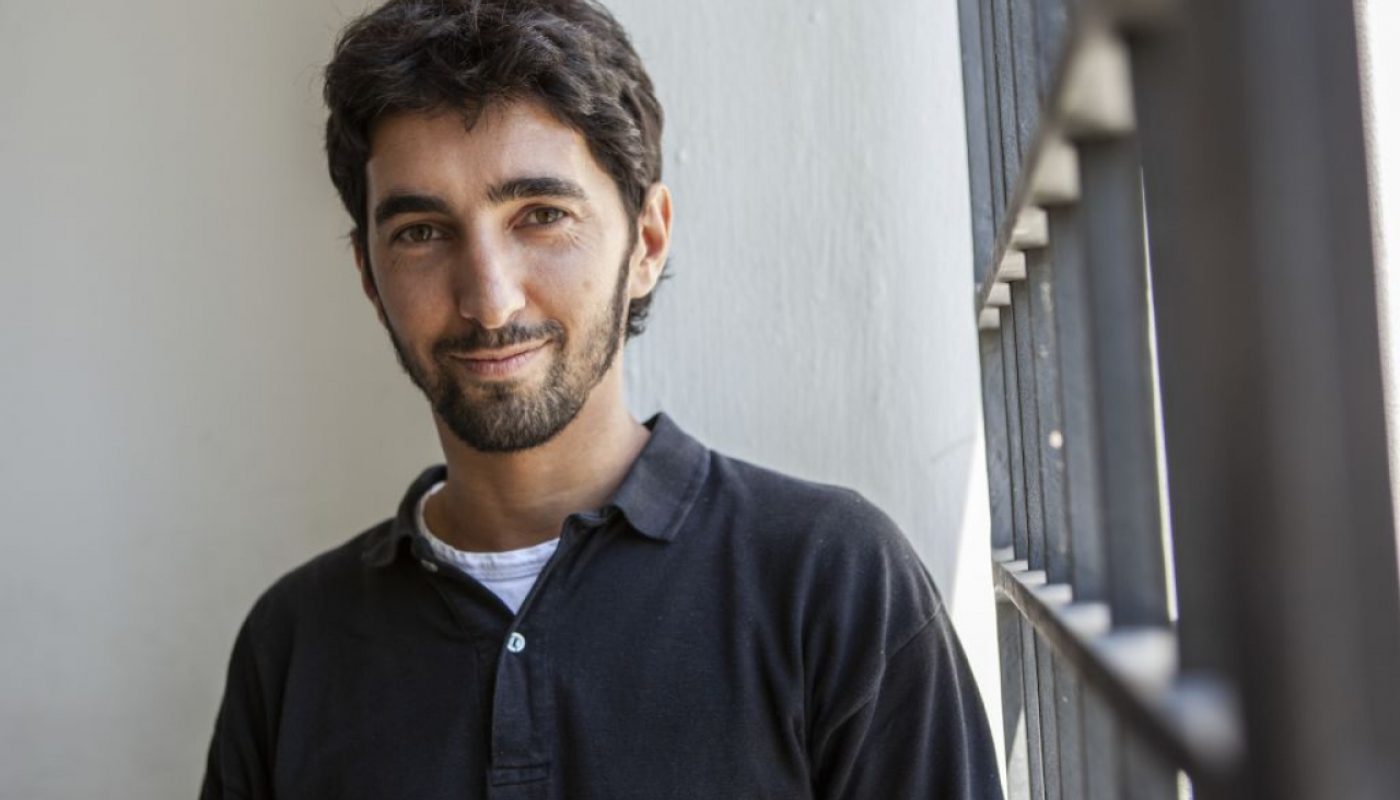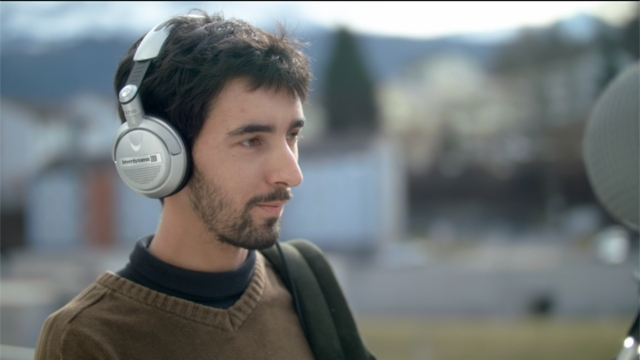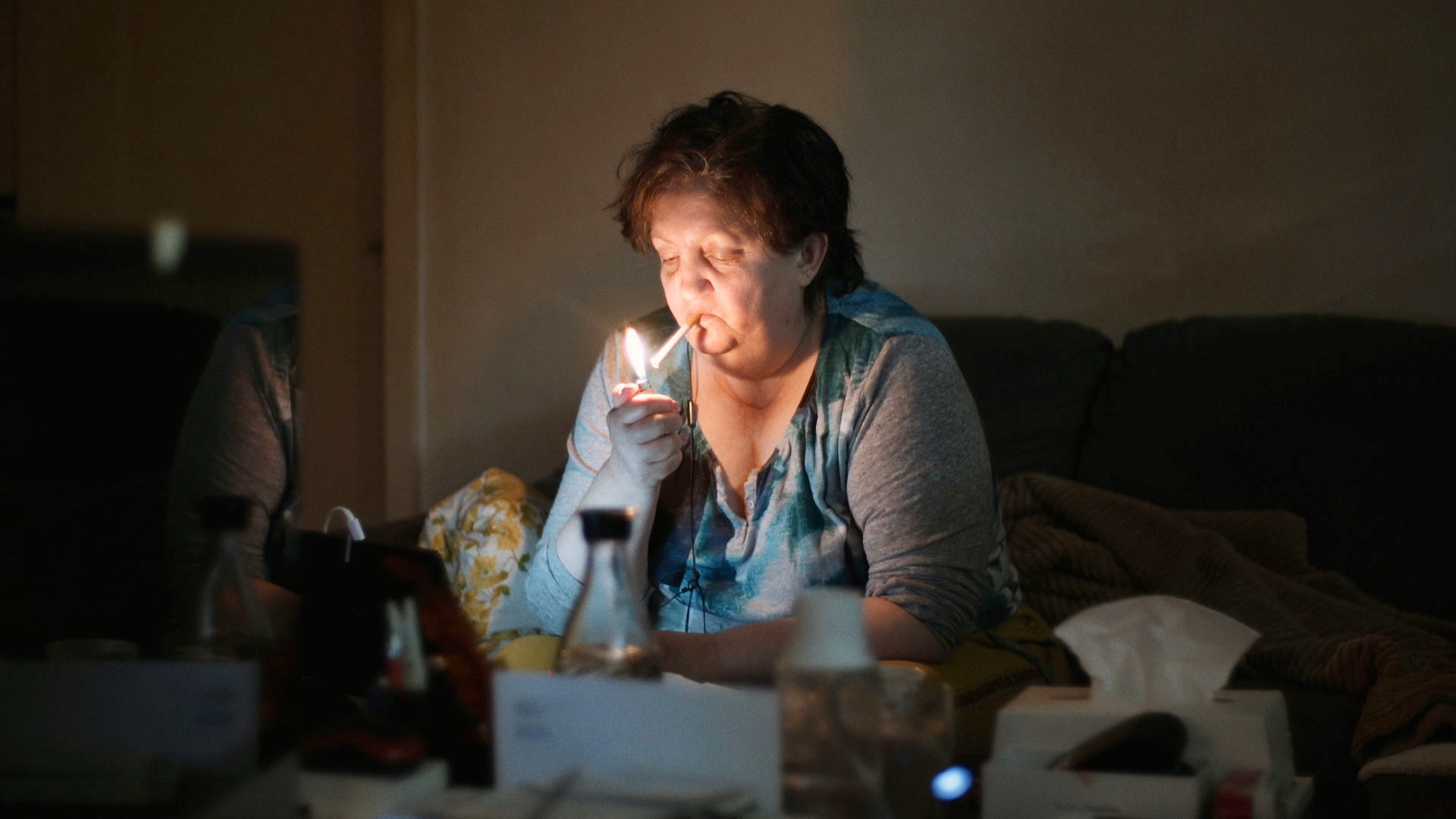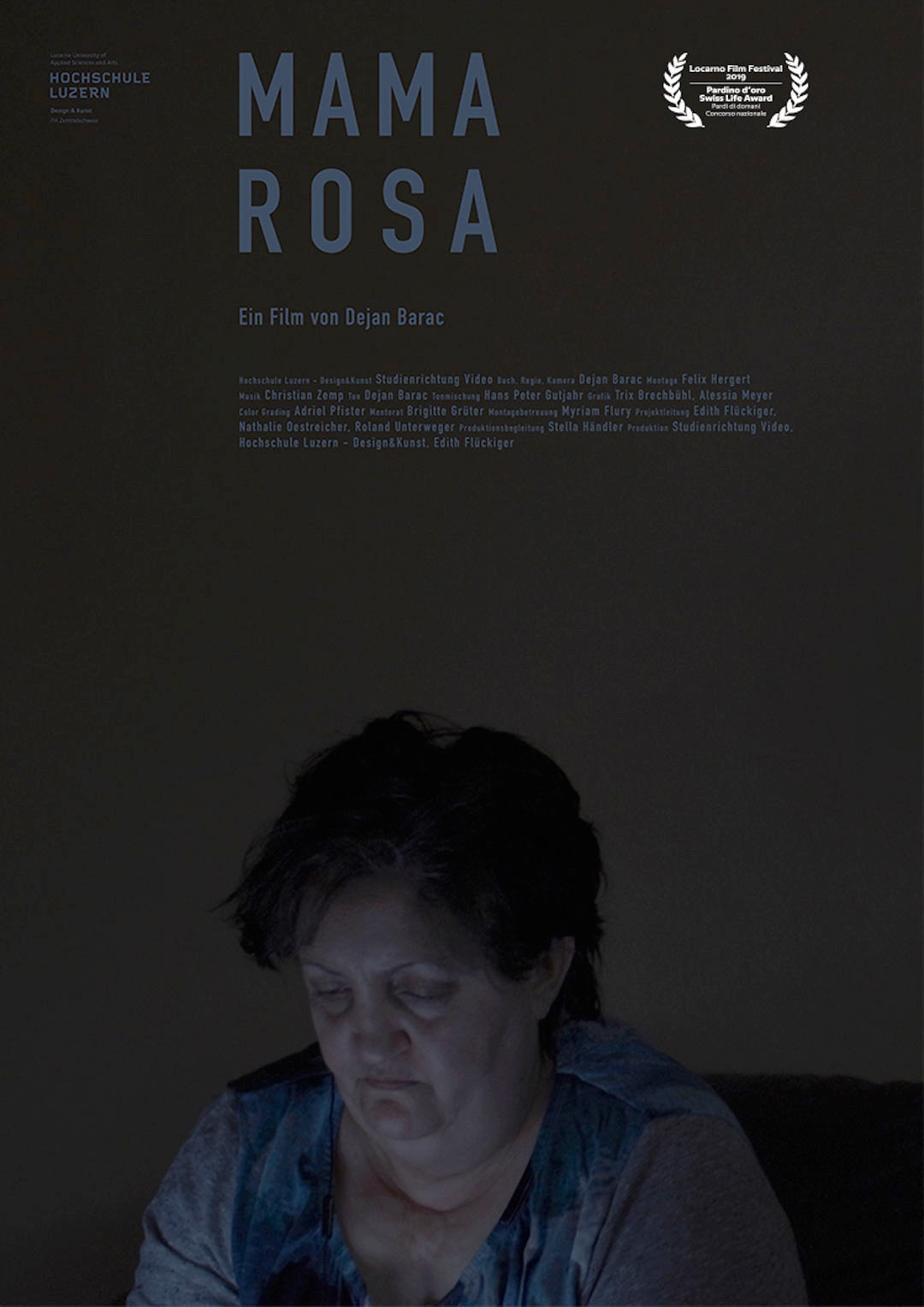

Dejan Barac - Understanding the concept of family through filmmaking
Introducing you to Switzerland and the Locarno Film Festival.
Geplaatst op 25 februari 2020Today we are going to introduce our readers to Swiss filmmaker Dejan Barac who tells us about his desire to become a teacher, his acquaintance with documentaries, about improving the relationship with his mother through the award-winning film Mama Rosa and about his impressions from festivals.
"To my mind, nothing can be as beautiful as the 'little things' that happen in real life. It is a great joy for me to capture those moments."
Background
Dejan Barac was born in Switzerland, despite the fact that his parents come from Croatia. The director has not visited his parents' homeland for almost 10 years and does not miss this place because he considers himself Swiss and does not feel linked with this country so much.
Dejan remembers: "As a child I was allowed to watch TV as much as I wanted and it used to be the best amusement for me. That was the time when I started to notice good acting. I started enjoying interesting films which became one of my greatest hobbies."
At the age of 16 the director began to set foot in the world of filmmaking by helping to organize the Upcoming Film Makers category within Schweizer Jungfilmfestival. This festival is held in Lucerne, Switzerland which is also the hometown of Dejan, therefore it was the perfect opportunity for him to get his first working experience and see the world of cinematography not only expressed in films, but also behind the scenes.
By the way, Dejan Barac still works for this festival, however, now his responsibilities are much wider. Together with a group of talented organizers he selects the movies for the program of the festival. Next to that, the director is responsible for the projection of the selected films. Dejan says: "These first working experiences of mine allowed me to watch a huge number of movies but I never thought about making them on my own. I was sure I wouldn’t be able to handle it."
Turning point
The director told CineSud Magazine that he actually wanted to become a teacher at first. What is more, he even entered the University of Teacher Education in Lucerne.
As fate willed, Dejan's teacher at the university noticed his talent and encouraged the director to work in cinematography. Dejan Barac says: "During one of the seminars we had the task to tell a story only with the help of sounds. It was the first time I recorded anything." His teacher was astonished with the Dejan’s work and as the result of this experience the director left the university and applied for the School of Art and Design, which is also located in his hometown. He borrowed an old DVCAM and made a short movie about his friend who is a political refugee and who had told Dejan about all the difficulties he had faced and about his life in general. The director had only two weeks to complete his first movie because of the School of Art and Design’s submission deadline. This experience was extremely fruitful as Dejan was indeed accepted at the school.
These three years of studying were definitely not wasted, however, till now the director has not met any student who is completely satisfied with the study. Some complain about their schedules, others are displeased with the demanding teachers, ect. He says: "I do not want to complain, as I think that you have to get as much as you can from your studies. It depends only upon you."
The director remembers that during the first year of studying, he and his classmates were working on a movie about an old Swiss couple that emigrated to Costa Rica. During the second year he made a film on his own which was about his friend whose asylum request was denied 18 years ago.
Dejan Barac is grateful to all the teachers of the School of Arts and Design, still, he states that he personally learned most from Johannes Binotto, Hans Peter Gutjahr and Tania Stöcklin. Despite all the good things he experienced while studying, the most memorable aspect for the director was to get to know all his classmates since all of them are different but very talented. It was a pleasure for Dejan to communicate with people with such diverse backgrounds. He is still in contact with some of them.

Working with documentaries
Dejan Barac admits: "To be honest I didn't really choose documentary films to work with. I lived in Lucerne and I had to stay there because of the work for the festival. It was just a coincidence that the School of Art in Lucerne was specialized in documentaries. I did not care, it was not so important for me which genre to learn. I was happy to get the opportunity to study anything connected with filmmaking."
For a long time, documentary films have looked similar for the director. However, when studying them more deeply Dejan was glad to see that his point of view was changing. There is a widespread prejudice that documentaries are boring and tedious. Nevertheless, that is not true and according to Dejan Barac people sometimes just underestimate the value of such films. He notes that the openness of documentary movies makes them very interesting. The director says: "What I like the most in documentary films is the time of observation and waiting for a special moment. It can not be planned like in a feature film. To my mind, nothing can be as beautiful as the 'little things' which happen in real life. It is a great joy for me to capture those moments."
Perfect film
Dejan Barac believes that it is possible to make a perfect film and he strives for reaching this ideal. In order to achieve this goal the director has some examples that he defined as an ideal worth following in the making of future films. He says: "In my ideal movie I would like to have an opening scene like the one in Post Tenebras Lux (2012), the light from A Vida Invisel De Euridice Gusmao (Invisible Life) (2019), the atmosphere/sound from Nuri Bilge Ceylan love scenes, the violence of Das weisse Band (The White Ribbon) (2009), the relevance of Satantango (1994), the camera of Rosetta (1999) and Claire Atherton to cut the movie."

Mama Rosa
Dejan's last film Mama Rosa is a real story about his mother. There are not any actors or roles in the movie, all the characters are real. This film tells the story of a woman who moves to Switzerland from Croatia and takes care of her ill husband. When her grown up children are moving out, Rosa is left alone. Dejan comments: "I just wanted to understand why my mom is living for somebody else, why she is just somebody's shadow. That is the main reason why I created this movie. I had my opinion as a son, however, behind the camera I got into a neutral position."
Such an experience helped the director to better understand his mom. Now he knows that her moral values are making her stay with her husband. He is sick and she can't leave him but it is not a weakness that she cannot do it. On the contrary, it is her strength. It is also her own decision and she is not going to change it.
The team of Mama Rosa was a small one. Dejan only worked with Felix Hergert, the cutter of the movie and Christian Zemp, the musician. It was the first time when the director had people to help him. He was learning to trust partners.
It did not take a lot of time to produce the film. Dejan remembers: "We had around 5 weeks for writing and investigation, 4 weeks for shooting, 4 weeks for the cut and 1 week for the sound mix and color grading."
Attitude towards family
Dejan Barac thinks that family is not as important in Switzerland as it is in other countries, however, he does not want to say that Swiss people do not care about their relatives at all. They do. Nevertheless, it is a common practice to count on governmental institutions for the elderly. Such possibilities are used quite often.
The director considers: "Generally I would say that western societies are tending to become egocentric and that means less solidarity. It works this way: if you do not need someone you just do not care."

Festival experience
Dejan has not visited a lot of festivals yet. In Switzerland he likes the Locarno Film Festival because of the atmosphere and the good organizers. He is also fond of the Solothurn Film Festival because the city is extremely beautiful and he got to appreciate it as a resident through his then-girlfriend who was born there. The Winterthur Film Festival is in his list of good festivals as well. The director says: "However, above all, I am very impressed of the festival in Duisburg (Duisburg Film Festival). Duisburg is not Germany's nicest city but the festival is phenomenal. They show every film only once and after every screening you have to change the room where you can participate in a one hour discussion with the moviemakers. The films are taken very seriously and the discussions are constructive and passionate at the same time."
In Dejan's point of view the biggest disadvantage in the organization of festivals is that they make blocks of 4, 5 or 6 movies. On the one hand, the programmers choose films that are important to be shown, but on the other hand, the movies also have to fit in the block. The director says: "Therefore, sometimes for festivals, films might be chosen to make a nice ending for a block (a comedy for instance), or it is considered better to show a short movie between two longer movies. In such cases the shorter movie feels like a break, like a filler and they are mostly animation or experimental movies."
Dejan would suggest doing it like they do in Duisburg. However, unfortunately, in his point of view this method is not suitable if you want to attract masses. He wishes that festivals stayed courageous and that movies stayed challenging and not only entertaining.
Remembering Locarno Film Festival 2019 Dejan Barac says: "Receiving the Pardino D'Oro for the best Swiss short film was a big surprise for me. It feels like a recognition of the work that my mother does day in day out. I am very thankful to the festival. The prize made my mother proud again and I hope that all the altruistic women out there can see that their work is valuable. It is all about dignity."
Recommendations for readers
Dejan knows a huge number of talented filmmakers and films, therefore he would like to share what are best ones in his point of view with our readers. He recommends: "I enjoy the films produced by the Dardenne brothers (the Belgian filmmaking duo Jean-Pierre Dardenne and Luc Dardenne). For instance, they have just released a new great film Le Jeune Ahmed (Young Ahmed) about a teenager weaving the plot to kill his teacher. In addition to this, recently I have seen some other good movies. These are films from Mati Diop, Karim Ainouz, Runar Runarsson and Pedro Costa. There are a plenty of Swiss filmmakers that I can recommend. Among them are Peter Liechti, Heidi Specogna, Ursula Meier and movies from my friends Corina and Nikola Schwingruber-Ilic, Lasse Linder, Sara Ramsay and Selin Dettwiler."
Right now Dejan is working on a project about dementia and is thinking about doing a Master degree of film in Zürich. Therefore, it surely won’t take a long time for us to discover some new and interesting work of his.
(c) All visual material is used with the filmmakers' permission.